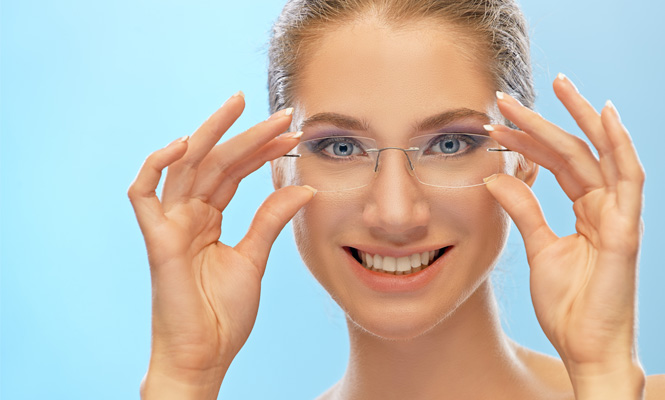Why You Need to Wear Reading Glasses
How close are you to the device upon which you are reading this article? If you’re holding it away from your face in an awkward manner or attempting to bring it closer and then farther away to allow your eyes to focus better on the text, chances are you may be a good candidate for reading glasses.
Try not to freak out; you can still be absolutely stylish and cultivate your hipster appeal by donning a pair of wayfarer reading glasses. Just because your up-close vision isn’t as sharp as it once was doesn’t mean you need to break out the bifocals just yet. In fact, reading glasses are pretty much a rite of passage for most of us. For almost everyone in their 40s and beyond, reading glasses are definitely a thing.
If you’ve been questioning whether you need a little up-close reading assistance, read on.
How Do I Know if I Need Reading Glasses?
The first sign is usually the inability to view things like books, magazines, and handheld devices from a normal distance (say, within a foot of your face). The text may appear blurry, and you may begin to squint to try to see it better. Normally, the next step is to hold the material farther away, which usually helps you focus.
Normally, people who need reading glasses still have pretty good distance vision. This means they can still read text and see objects clearly that are farther than a foot from your face.
Initially, you may only experience trouble with your vision when you are tired. Many people report that they only need to use reading glasses in the evenings, when they are most tired from the day.
Another symptom that can indicate the need for reading glasses is if you have trouble reading small print when the lights are dim. This is also a great indication that you are suffering from what is likely age related vision deterioration and should consider grabbing a pair of high quality readers.
What Do Reading Glasses Do?
Unlike prescription strength lenses that are prescribed by an optometrist after you’ve had your vision tested, reading glasses come in a variety of standardized lens strengths and are available over the counter, without a prescription. The best way to determine which lens strength is best for you is to take a material that you find hard to read with you when you shop for your reading glasses.
Starting with the lowest strength available, try on the glasses and attempt to read the text you cannot see without lenses. Once you are able to focus on the text without straining, you’ve found your correct strength.
Although it can be tempting to just purchase the drugstore pair you tried on, it isn’t recommended. Not only are you seriously limited to frame options, the quality of the lenses is very low. This means you’ll likely feel the lenses get smudged or dirty very easily, and after a short period of time begin to deteriorate, leaving you needing to purchase another pair. At approximately $20 per pair, the cost of reading glasses can really add up.
Additionally, lower quality lenses can actually be harmful to your eyes; the lenses can warp and distort your vision, give you headaches, and over time, impair your ability to see up close to a greater degree.
It’s much better to invest in a high quality pair of reading glasses that are both aesthetically pleasing to you and contain high quality frames that resist fingerprints and dirt and keep good condition for longer periods of time.
What Are Some Common Myths About Reading Glasses?
Probably the biggest and oldest myth is that reading glasses cause your eyes to weaken. That simply isn’t true, and any optometrist can validate that information for you during an eye exam. Use of corrective lenses do not harm your eyes, in fact they help them focus with less strain so that your eyes stay comfortable and you do not suffer from headaches related to eye fatigue.
Another myth is that reading glasses will solve all your vision problems. This too is, unfortunately, untrue. While reading glasses may take care of your immediate vision problems, you are likely to experience greater vision loss as you age, which can require stronger lenses, or different lens strengths for each eye.
Lastly, wearing reading glasses doesn’t make one look old. This is really just an old, outdated idea that harkens back to visions of our grandparents wearing long chains around their necks attached to their bifocal-like “cheaters.” Today’s reading glasses are ultra-chic and look great on any face.
Reading glasses are a great way to correct nearsighted vision that has begun to decline. Available in a myriad of shapes and sizes without a prescription, you can improve your ability to read text close up and look great at the same time.


Comments are closed.